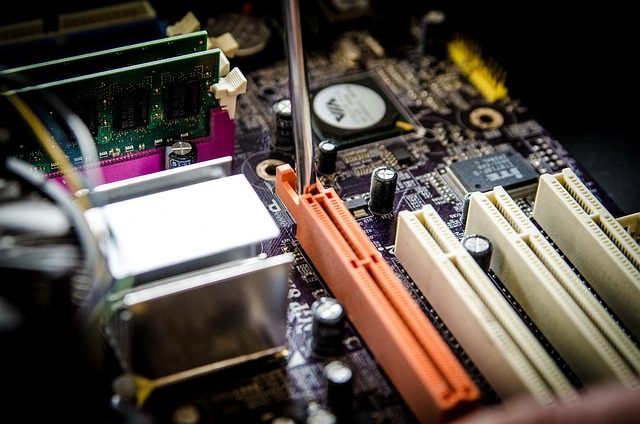The Ultimate Guide to Free Ebooks in Electronics

Welcome to our comprehensive guide to free ebooks in the field of electronics. Whether you’re a hardware engineer, a hobbyist, or simply interested in learning more about electronics, this guide will provide you with a curated collection of free resources to expand your knowledge.
1. Engineer’s Mini-Notebook: Formulas, Tables and Basic Circuits
- Author: Forrest M. Mims III
- Publisher: Radio Shack, 1993
Forrest M. Mims III’s “Engineer’s Mini-Notebook: Formulas, Tables and Basic Circuits” is an invaluable resource for anyone in the field of electronics. This book includes a compilation of standard application circuits and circuits designed by the author himself. Each circuit was meticulously assembled and tested during the development of the book, ensuring accuracy and reliability.
2. Practical Electronics
- Author: Wikibooks
- Published: 2012
“Practical Electronics” is a comprehensive ebook that aims to teach readers about both analog and digital electronics at a practical level. By the end of this book, readers will be able to combine circuit elements to create more complex circuits and have a solid understanding of how electronics work. This resource is suitable for beginners and those looking to enhance their practical skills in electronics.
3. Analog Circuits
- Editor: Yuping Wu
- Publisher: InTech, 2013
In “Analog Circuits,” editor Yuping Wu presents a new architecture for a SAR ADC (Successive Approximation Register Analog-to-Digital Converter) that eliminates process mismatches and minimizes errors. The book also introduces an automated system for designing passive filter circuits using local searching techniques. This is a valuable resource for those interested in advanced analog circuit design.
4. Photodiodes: From Fundamentals to Applications
- Author: Ilgu Yun
- Publisher: InTech, 2012
Ilgu Yun’s “Photodiodes: From Fundamentals to Applications” explores the behavior and applications of photodiodes. This book covers fundamental reviews of photodiodes and specific applications developed by the author. It is intended for graduate students, engineers, and researchers seeking a deeper understanding of photodiodes and their practical uses.
5. Electronics
- Author: Wikibooks
- Published: 2012
“Electronics” is a comprehensive textbook that explains the design and function of electronic circuits and components. The book covers electronic circuit components, DC analysis, and AC analysis. It is suitable for hobbyists and engineering students alike, providing a solid foundation in electronics.
6. Digital Circuits
- Author: Wikibooks
- Published: 2012
“Digital Circuits” serves as an introduction to the world of digital circuits. The book relies on concepts of discrete mathematics but does not require any previous knowledge of the subject. The necessary mathematical concepts are developed within the text, making it accessible to beginners. This resource is ideal for those looking to delve into the realm of digital electronics.
7. Introduction to Physical Electronics
- Author: Bill Wilson
- Publisher: Connexions, 2010
“Introduction to Physical Electronics” provides an introduction to solid-state devices, transmission lines, and propagating electromagnetic waves. The book covers topics such as conductors, semiconductors, diodes, bipolar transistors, FETs, IC manufacturing, and more. It is a valuable resource for those interested in the physics and practical applications of electronic devices.
8. Advances in Solid State Circuit Technologies
- Editor: Paul K. Chu
- Publisher: InTech, 2010
“Advances in Solid State Circuit Technologies” describes the current status of important topics in solid-state circuit technologies. The book is divided into four categories: general information, circuits and devices, materials, and characterization techniques. It provides insights into the latest advancements in solid-state circuit technologies and their practical implementations.
9. Circuit Analysis
- Author: John E. Whitehouse
- Publisher: Horwood Publishing Limited, 1997
John E. Whitehouse’s “Circuit Analysis” covers network equations, network theorems, networks with inductors and capacitors, AC and DC analysis, Laplace transform analysis, Fourier series and transforms, frequency response of networks, and more. This book provides a comprehensive understanding of circuit analysis techniques and their applications.
10. Principles of Semiconductor Devices
- Authors: Bart Van Zeghbroeck
- Published: 2007
“Principles of Semiconductor Devices” explores the behavior of semiconductor devices and their relation to design principles. The book covers the physics behind semiconductor devices and how it translates into their electrical characteristics. It serves as a bridge between the fundamental physics and the practical design of electronic circuits.
11. Socratic Electronics
- Author: Tony R. Kuphaldt
- Published: 2008
“Socratic Electronics” takes a unique approach to teaching electronics by utilizing the Socratic method of asking questions. The book covers various topics such as basic electricity, simple circuits, Ohm’s Law, and op-amps. This interactive and engaging style of teaching makes it an excellent resource for both beginners and experienced individuals seeking a fresh perspective on electronics.
12. Lessons In Electric Circuits
- Author: Tony R. Kuphaldt
- Published: 2008
“Lessons In Electric Circuits” was written with the goal of providing readable, high-quality information on industrial electronics. The book covers a wide range of topics, from basic electronics to advanced concepts, without delving too heavily into complex mathematics. It is a valuable resource for students and professionals seeking practical knowledge in the field of electronics.
Conclusion
In conclusion, the world of electronics is vast and ever-evolving. These free ebooks provide valuable insights into various aspects of electronics, ranging from basic circuits to advanced semiconductor devices. Whether you’re a beginner or an experienced professional, these resources will help you expand your knowledge and enhance your skills in the field of electronics. Happy reading and learning!




